
Tuesday, 26 April 201108:00 | Registration | |
Session: Resequencing, Diagnostics and Optimisation |
| | 09:00 | 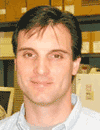 | Keynote Presentation Advances in Next-Generation Sequencing and their Applications in Genomic Science
Michael Metzker, President & Chief Executive Officer/Adjunct Associate Professor, Baylor College of Medicine, United States of America
NGS technologies have transformed basic, applied, and clinical sciences as we know them today. A technical update on current platforms as well as their applications, highlighting personal genome and big science projects, is presented. |
| 09:30 | Next Generation Sequencing: Finding the Needle in the Haystack
Nick Beckloff, Post-Doctoral Scientist, Los Alamos National Laboratory and DOE Joint Genome Institute, United States of America
Next Generation Sequencing (NGS) technologies, paired with high-performance bioinformatics, have opened up new scientific applications and approaches to help solve complex problems associated with biodefense, food contamination, and environmental monitoring. Utilizing community tools and novel approaches, LANL will show current progress with methods for identifying the so called “needle in the haystack” for various DOD, DHS and DOE applications. | 10:00 | Graphene Nanopores for Physical DNA Sequencing
Slaven Garaj, Research Associate, Harvard University, United States of America
We report a nanopore detector based on graphene, which we use to characterize individual DNA molecules. Measured subnanometer thickness of graphene indicates the device is intrinsically capable of resolving subsequent nucleotides, and has potentials for achieving inexpensive DNA sequencing. | 10:30 | Coffee and Networking in Exhibition Hall | 11:15 | Comparative Analysis of Transposase, Endonuclease, and Physical Shearing Methods for Constructing Next-Generation DNA Sequencing Libraries
Nicholas Caruccio, Director, Epicentre Biotechnologies, United States of America
A comparison of libraries made by enzymatic or mechanical fragmentation reveals a slightly greater insertion bias, though this has little practical impact on genomic coverage, GC bias, and library complexity based on high-coverage sequencing of human, insect, and bacterial genomes. | 11:45 | Towards Protein Diagnostics on a Next Generation Sequencer
Koen Kas, CSO, Pronota, Belgium
We demonstrate the potential of a next generation sequencing-based platform to quantify proteins directly from blood, using aptamer as an interface. | 12:15 | Lunch and Networking in Exhibiton Hall | 12:45 | 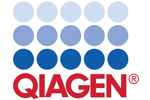 Free Workshop Free Workshop
The miRNA Revolution Tools for miRNA purification and expression profiling
Eric Lader, Senior Director
| 13:00 | 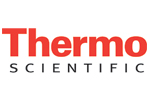 Free Workshop Free Workshop
Experimental Workflows for Successful miRNA Research Applications
James Goldmeyer, Technical Marketing Scientist
| 13:15 | Poster Viewing | 14:15 | 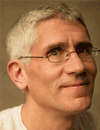 | Keynote Presentation Next Generation Sequencing Assays: Massive Multiplexing
Corey Nislow, Associate Professor, University of British Columbia, Canada
Dramatic advances on all Next Generation sequencing platforms are delivering ever greater read counts and larger datasets. We have developed and implemented multiplex experimental designs that take advantage of these developments to increase reproducibility and reduce costs. |
| 14:45 | Reagent Innovations to Support Highly Multiplexed and Highly Sensitive Genome Analysis
Steven Benner, Distinguished Fellow, Foundation for Applied Molecular Evolution, United States of America
DNA pairing rules (A pairs with T, G with C) are so imperfect that various tasks (multiplexed PCR and array capture, for example) important in NextGen sequencing cannot be done reliably. This talk will describe how reliability is achieved using "reagent innovations", including alternative DNA alphabets that provide capture orthogonality, easy multiplexing, and reversible terminators. | 15:15 | Coffee and Networking in Exhibition Hall | 16:00 | TREAT: A Comprehensive Open Framework for Targeted Re-Sequencing Analysis
Yuji Zhang, Research Associate, Mayo Clinic, United States of America
This talk will present the TREAT, a tool for facile navigation and mining of the variants from both targeted re-sequencing and whole exome sequencing. | 16:30 | SnowShoes-EX: A Comprehensive Workflow for mRNA-Seq Data Analysis
Zhifu Sun, Assistant Professor, Mayo Clinic Rochester, United States of America
NGS is a powerful tool for transcriptome profiling, yet the biggest challenge is data analysis of the enormous data. In this talk, I will describe a comprehensive mRNA-seq pipeline developed at Mayo Clinic called SnowShoes-EX, which integrates rapid sequence alignment with a rich set of analytical tools for variant calling, annotations, fusion transcript detection, reliable DE and alternative splicing discovery. | 17:00 | Bowtie, BWA, SHRiMP, SOAP or BLAST: Which One to Use?
David Chen, Senior High Performance Computing Specialist, Northwestern University, United States of America
Though there are some works done to evaluate popular NGS alignment methods, like Bowtie, BWA, SHRiMP and SOAP, an in-depth evaluation is needed to compare their accuracy, consistency, performance, and implementation algorithms. By our self-developed simulated datasets, we developed a quantitative model to assess the accuracy of alignments and established a guideline to help researchers select alignment software that best fits their needs. | 17:30 | A Comprehensive Study of Strand Bias in Next Generation Sequencing
Yan Guo, Bioinformatician, Vanderbilt University, United States of America
This study has three goals: 1. To determine if strand bias of sequencing data have any effect on genotyping. 2. To discover the cause of strand bias. 3. To study the distribution of strand bias across subjects. | 18:00 | Drinks Reception |
Wednesday, 27 April 2011 |
Session: Gene Expression, Regulation and Microorganisms |
| | 09:00 | 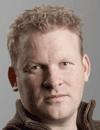 | Keynote Presentation Thousand Dollar Genomes and Million Dollar Questions
Edwin Cuppen, Professor, University Medical Center Utrecht, Netherlands
With rapidly evolving next generation sequencing technology wide availability of personal genomes is becoming reality. However, comprehensive determination and interpretation of genome-wide variation remains a challenge and requires systematic studies to understand mechanisms behind genotype-phenotype relationships. |
| 09:30 | A Genomic View of Epigenetic Regulation in Cancer
Liguo Wang, Postdoctoral Fellow, Baylor College of Medicine, United States of America
I will introduce a series of algorithms for second-generation sequencing data analysis, including Model Based Analysis of ChIP-seq, Bisulfite Sequence MAPping and Analyzing program, Statistical Analysis of RNA-seq, and finally Genomic Signature Map for data integration. | 10:00 | Integrating the “Omes”
Nicole Cloonan, Senior Research Officer, The University of Queensland, Australia
Integration of “omic” scale data sets allows greater insight into the functional and regulatory systems within the mammalian cell. This talk will present on how integrating genomic, epigenomic, transcriptomic, and miRNA::mRNA interaction data generated from massive-scale sequencing can help decode the underlying miRNA circuitry associated with cellular proliferation and cancer. | 10:30 | Coffee and Networking in Exhibition Hall | 11:15 | RNA-Seq for High Throughput Clinical Studies
Wenzhong Xiao, Assistant Professor, Massachusetts General Hospital, United States of America
To apply RNA sequencing in high throughput clinical studies, we critically evaluated its reproducibility and its sensitivity and specificity in detecting differential expression over multiple independent sample preparations, as well as its throughput and cost-effectiveness. | 11:45 | Integrated In Silico Analysis of NGS Prostate Cancer Data via High-Resolution RNA-Seq Analysis
Sandeep Sanga, Bioinformatics Product Development Scientist, Ingenuity Systems, United States of America
This presentation discusses novel insights into mechanisms of prostate adenocarcinoma by leveraging rapidly growing next generation sequencing (NGS) data, in particular, human transcriptome data through in silico data analysis and interpretation using CLC Bio and Ingenuity IPA. | 12:15 | Lunch and Networking in Exhibition Hall | 12:45 | 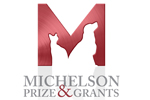 Free Workshop Free Workshop
Michelson Prize & Grants Information Session Learn about the $75 million challenge!
Katy Palfrey,
| 13:30 | Poster Viewing Session 2 | 14:15 | Single Cell Genomics: Accessing the Genomes of Uncultivated Microbes
Mary-Jane Lombardo, Research Scientist, J Craig Venter Institute, United States of America
We describe a high throughput pipeline for single cell genomics, and analysis of next generation sequence datasets for single cells from the marine environment and the human gut microbiome, including de novo assembly of genomes of uncultivated organisms. | 14:45 | Genomics of Bacterial Pathogen Strain Variation
Timothy Read, Associate Professor, Emory University, United States of America
Bacterial pathogens used to be represented in research by a limited number of model strains. Through next generation sequencing we can integrate detailed knowledge of natural diversity and evolutionary history into our growing picture of infectious disease agents. | 15:15 | Coffee and Networking in Exhibition Hall | 16:00 | Genomic Biology of Miscanthus
Kankshita Swaminathan, Project Scientist, University of Illinois, United States of America
Miscanthus, a promising biofuel crop, is essentially a wild species with no domestication or breeding. We have performed genomic and transcriptome sequencing, performed expression profiling and developed high-density genotyping arrays to kick-start breeding of Miscanthus using the latest genomic tools. | 16:30 | Close of Conference |
|

 Add to Calendar ▼2011-04-26 00:00:002011-04-27 00:00:00Europe/LondonNext-Gen Sequencing CongressNext-Gen Sequencing Congress in BostonBostonSELECTBIOenquiries@selectbiosciences.com
Add to Calendar ▼2011-04-26 00:00:002011-04-27 00:00:00Europe/LondonNext-Gen Sequencing CongressNext-Gen Sequencing Congress in BostonBostonSELECTBIOenquiries@selectbiosciences.com